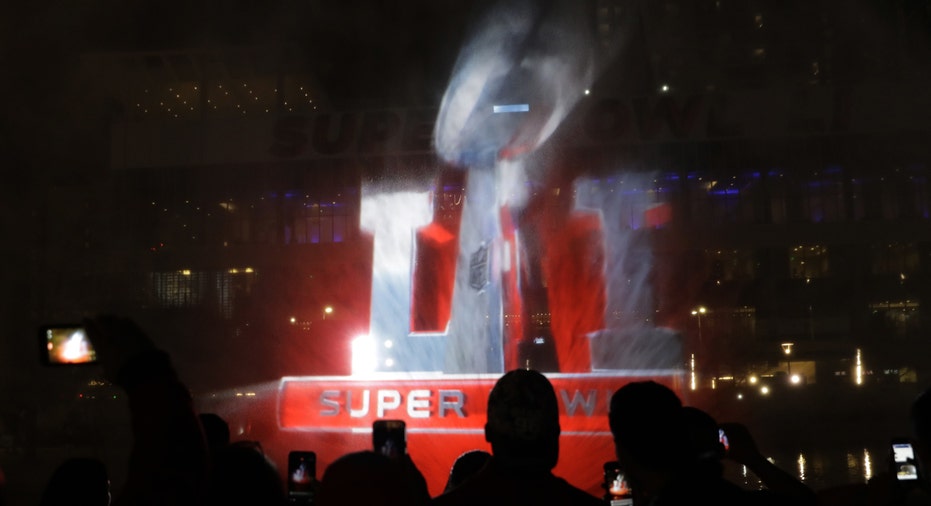For Houston, Super Bowl May be 'Just a Big Party'

Houston doesn’t seem to have a problem Friday as Super Bowl 51 mania heats up. But while this year’s host city is expecting a heavy revenue inflow, most experts say the big game isn’t the cash cow that some projections suggest.
For officials in Houston, the Super Bowl provides a prime opportunity to showcase the city’s amenities and lure outside investors, according to Bill Gilmer, director of regional forecasting at the University of Houston’s Bauer College of Business. But long-term, meaningful benefits to the local economy are unlikely to take shape.
“Does it have a lasting impact? Maybe in the upgrade of a few facilities,” Gilmer said. “But it is just a big party that lasts a few days, and is gone. It is purely transitory in terms of local fundamentals.”
Houston expects this weekend’s contest between the New England Patriots and the Atlanta Falcons to draw free-spending tourists and national media outlets that will help promote local attractions. A 2016 study commissioned by the Houston Super Bowl Committee projected 138,000 non-local visitors would contribute to $350 million in economic impact, including about $31 million in city and state tax revenue.
But some sports economists say $350 million is a somewhat overblown call. While they agree the Super Bowl provides a noticeable bump in local spending, they argue that officials tend to embellish the actual amount by tens of millions of dollars. Organizer-backed studies often fail to accurately subtract the spending that would have occurred regardless of the Super Bowl, known as the “substitution effect,” or the amount of spending lost when locals are “crowded out” of city venues due to football mania.
“The last Texas Super Bowl was supposed to generate $750 million. You can see that these predictions are [wild guesses],” Phil Porter, an economist at the University of South Florida who has analyzed the Super Bowl’s financial impact, told FOX Business. “The fact of the matter is that after the Super Bowl when data become available, no discernable impacts are evident – ever.”
The Houston Super Bowl Committee isn’t the first group to tout a massive potential economic impact. Last year, an organizer-commissioned study predicted Super Bowl 50 would generate about $350 million for the greater San Francisco Bay area. In 2015, an Arizona State University projected Super Bowl 49 a colossal $719 million boon for the greater Phoenix area. But Gilmer said such numbers are arbitrary.
“Some of them estimate spending, some estimate economic impact which is only spending from out-of-town sources, many completely mix up spending and economic impact, some just say their results are proprietary and they can't tell you what they did. Just toss out a number. There is plenty of room to be cynical about this,” Gilmer said.
The Houston committee-backed study does attempt to account for the “substitution.” To reach the $350 million figure, the model projects total Super Bowl-related spending of $450 million and subtracts $78 million in displaced tourism, as well as $22 million lost to “leakages,” or spending outside the greater Houston area.
“Houston is excited and proud to host Super Bowl LI. We are thrilled that thousands of visitors from around the world will see what we have known since the last time that we hosted the game in 2004; Houston is a great city to live, work, and play,” a committee spokesman said in a statement to FOX Business.
An independent study conducted by PricewaterhouseCooper is more conservative. The global accounting firm estimates that Super Bowl 51 will produce $190 million in direct spending in the greater Houston area, with dollars spent on everything from local entertainment to food and beverages. The firm reached that figure through a “proprietary analysis,” so it’s unclear exactly how they arrived at the total.
“In contrast to the prior three games in the San Francisco Bay area, Glendale [Arizona] and New York/New Jersey, Houston’s centralized downtown with close proximity to the host stadium allowed this year’s host committee to plan events within a relatively small radius, enabling visitors to spend more time on experiences and less time traveling – ultimately enhancing the visitor experience while capturing greater overall return,” said Adam Jones, director of PricewaterhouseCooper’s sports and tourism sector.
Other experts conducting their own Super Bowl analyses tend to be even more frugal in their estimates. A 2003 study by sports economists Victor Matheson and Robert Baade concluded that Super Bowl host cities from 1970 through 2001 saw an average boost of $92 million.
In February 2016, Matheson told FOX Business that $30 million to $120 is a reasonable range to expect for Super Bowl-related spending – a clear success for a single football game, but not the quarter-billion dollar boost that some expect.



















